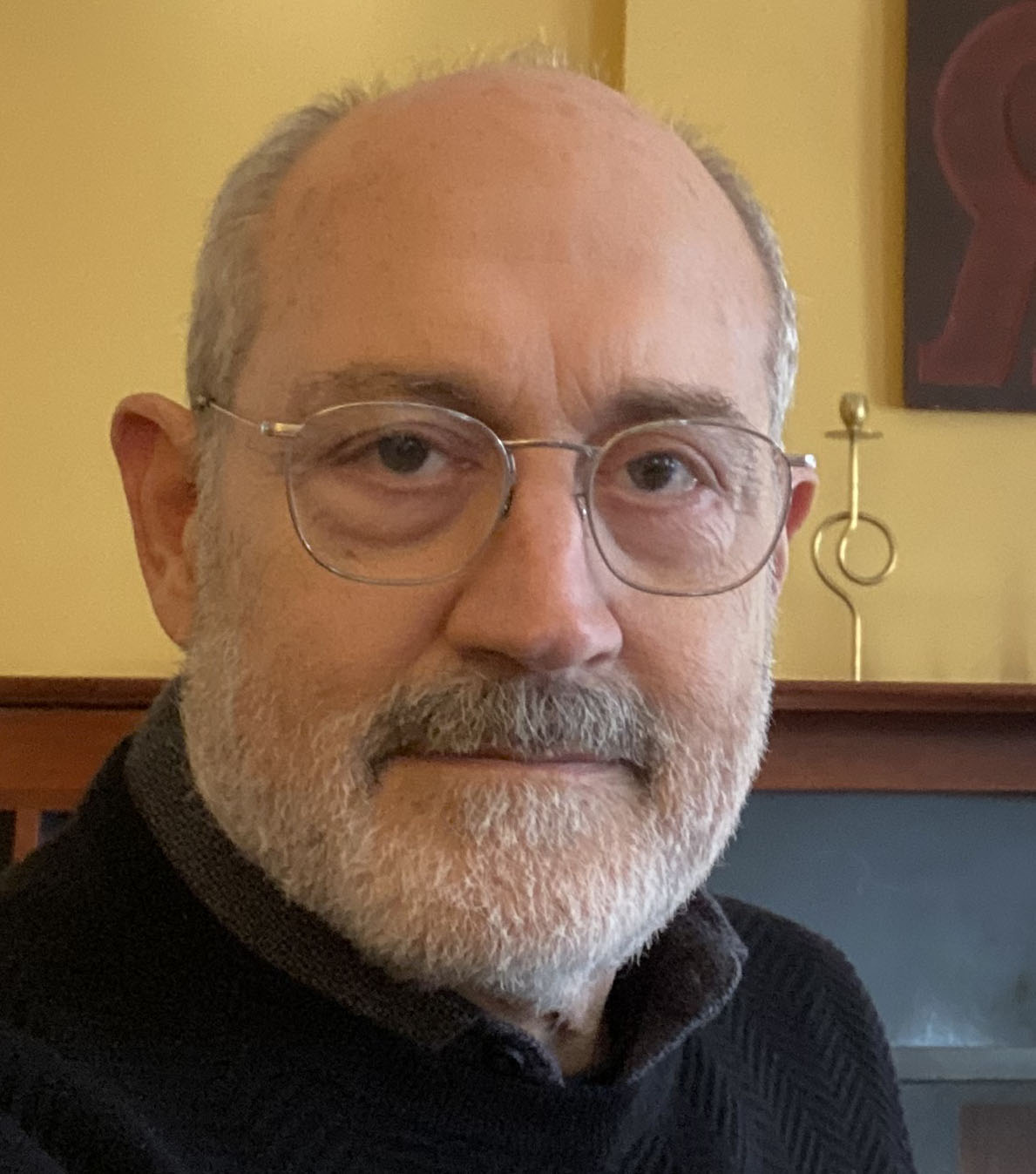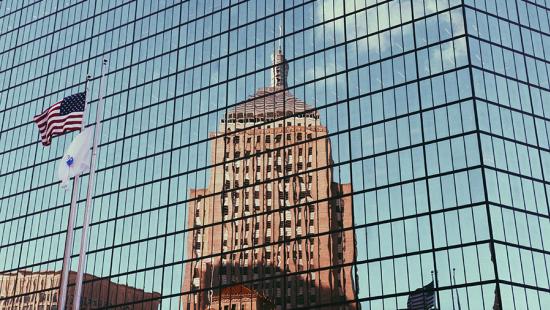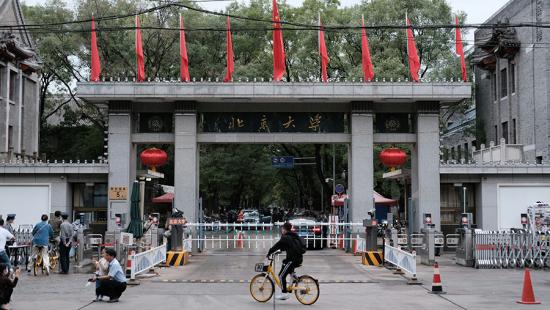Between Worlds Lecture: The Life and Work of Joseph Allen Stein in the U.S. and India
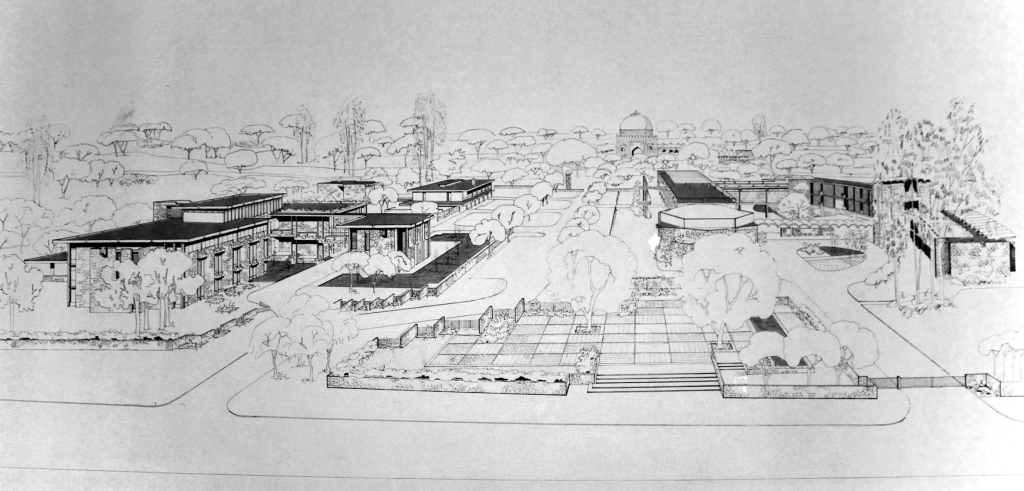
Ford Foundation Headquarters and India International Centre with Lodi Gardens in the background. Joseph Allen Stein, architect. photo / Joseph Allen Stein
Joseph Allen Stein (1912–2001) was a rising young architect in the San Francisco Bay Area when the political storms of the time drove him and his family to India. Arriving to head the new architecture program at the Bengal Engineering College in Calcutta in 1952, just five years after the country's independence, he soon began working on an increasingly important series of projects, on his own and with various partners, and his firm would become the largest in India. Clients included the Ford and Rockefeller Foundations, various non-profit organizations, governmental entities, and private businesses and individuals. Despite his expatriate status, he became one of the leading figures in the architecture of independence, and today his buildings, such as the India International Centre, the India Habitat Centre, the Triveni Kala Sangam, ICRISAT, the Indian Express Tower, and the Australian High Commission's Chancery, are monuments of the era. Stein's interests included long-span lightweight structures, regional modernism, the environment of the Himalayas, and sustainability more broadly.
This year, Stein's family has given a significant tranche of materials from his personal archive to the Cornell University Library. The gift includes some 5,000 drawings, firm brochures, publications, and other documents from over 70 years of Stein's professional life. An exhibition drawn from the gift will be installed in the Bibliowicz Family Gallery in Milstein Hall from October 17–28.
The colloquium presentation will include talks by Stein's son, David Stein, a planner with extensive experience in the U.S. and India, and Associate Professor Jeffrey M. Chusid, who is working on a book on the architect. They will be joined by Professor Mary N. Woods, who has written on many aspects of modern architecture in India, for a discussion following the talks.
View the related Between Worlds Exhibition: The Life and Work of Joseph Allen Stein in the U.S. and India, October 17–October 28, 2022, Bilbliowicz Family Gallery, Milstein Hall.
Bios:
Jeffrey Mark Chusid
Associate Professor
Jeffrey Mark Chusid is a preservation architect and planner and Associate Professor in the Department of City and Regional Planning at Cornell University. Chusid has consulted on preservation policy, natural and cultural resource conservation, and urban design for communities including Shanghai; Sevastopol, Ukraine; Levuka, Fiji; and Bastrop, Texas; as well as museums in California, Texas, and New York. His research, teaching, and writing have focused on the fate of historic resources in areas of cultural exchange and conflict, the conservation of modernist architecture and planning, especially in the U.S. and India, and sustainable development using historic sites and communities. Chusid's book, Saving Wright (Norton 2011), won the Antoinette Forrester Downing Book Award from the Society of Architectural Historians. His next book is a study of the expatriate architect Joseph Allen Stein and his career in the U.S. and India. Chusid has taught planning, architecture, and preservation at the University of Texas at Austin, Harvard, Cal Poly Pomona, and the University of Southern California.
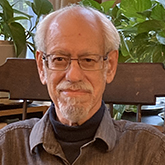
J. David Stein
David Stein is an urban and regional planner. His work has included projects and employment in the U.S., India, and Israel.
He holds a B.A. in Sociology and a Master of City Planning from the University of California at Berkeley, where he was also active in the student movements of the 1960s.
His varied experience, both in types of work and their locations, has led him to believe that human interaction with the environment, and especially the quality of our built environments, has a profound impact on the nature of our relationship to others and to the world. This has been poorly understood by most of those responsible for planning and building our cities and nations.
David is the son of the architect Joseph Allen Stein. At an early age, he and his family left the U.S., initially for Mexico and later Europe, before they ultimately settled in India where he grew up. He returned to the U.S. for college. This unique background left a profound impression on him and, he believes, gave him a far broader view of the world than would have been his had he grown up only in California. His upbringing under his architect father was perhaps one of the most significant influences on his development. Their conversations ranged widely from science to art to politics, photography, architecture, and to the nature of their life in new and adopted environments.
Professionally, he has worked at both the municipal and regional levels, having been, among other positions, Director of the Transportation Program at the New England Regional Commission in the '70s, a transportation planner and later manager at the Southern California Association of Governments, the Planning Director for the Northern Jersey Transportation Planning Authority, and the Executive Director of Nation'sPort, an industry association serving the Port of New York and New Jersey. He also worked on the preparation of the National Capital Regional Plan for New Delhi and, together with his wife, the Greenbelt Development Plan for the community of Auroville in India and a town plan for the community of Manteo on the Outer Banks of North Carolina.



